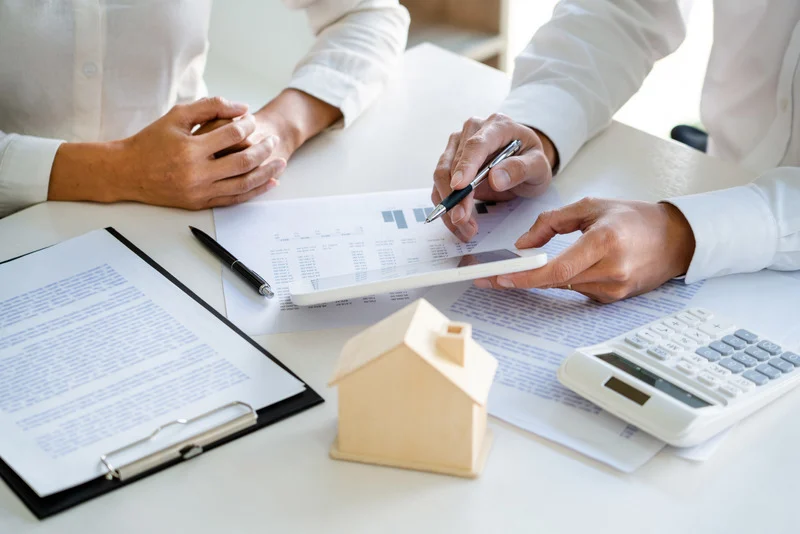Buying your first home is an exciting step, but it’s easy to get overwhelmed or make costly mistakes if you’re not fully prepared. With a competitive housing market, complex paperwork, and the pressure to make a big financial decision, first-time buyers often find themselves stressed and confused. This guide focuses on common pitfalls and offers actionable tips to help you navigate the process wisely—so you can buy with confidence, not regret.
Knowing When You’re Ready to Buy
One of the most important decisions is determining the right time to buy. Many people jump into homeownership without evaluating whether it’s the best move for them right now.
- Stability: Are you planning to stay in the area for at least 3–5 years? Buying a home is more beneficial in the long term.
- Job Security: Make sure you have a stable source of income that can support monthly mortgage payments.
- Emergency Fund: Beyond the down payment, you should have savings for emergencies, repairs, and unexpected costs.
Buying a home before you’re financially or emotionally ready can turn a dream into a burden. Make sure you’re in a position to take on the commitment.
Common First-Time Buyer Mistakes
By learning what others have done wrong, you can avoid falling into the same traps. Here are some of the most frequent mistakes—and how to prevent them.
| Mistake | Why It Happens | How to Avoid |
|---|---|---|
| Not Getting Pre-Approved | Buyers assume they know what they can afford. | Always get pre-approved to understand your budget and show sellers you’re serious. |
| Skipping the Home Inspection | Trying to save money or rushing the process. | Hire a qualified inspector to avoid costly repairs down the road. |
| Overextending Budget | Falling in love with a home that’s too expensive. | Stick to your budget, even if it means compromising on features. |
| Ignoring Additional Costs | Only looking at the mortgage payment. | Budget for taxes, insurance, utilities, and maintenance. |

Steps to Take Before House Hunting
Preparation is everything. Here’s a checklist of steps to take before you even look at your first home:
- Check your credit score and take steps to improve it if needed.
- Pay down debt to improve your debt-to-income ratio.
- Build your savings for a down payment and closing costs.
- Research mortgage options and get pre-approved.
- Make a list of must-haves and nice-to-haves for your future home.
Being organized and proactive will put you ahead of the curve and make the process smoother.
Choosing the Right Location
Don’t underestimate the power of location. It can affect not only your quality of life but also the future value of your investment.
- Commute: How long will it take to get to work, school, or essential services?
- Safety: Research crime rates and talk to potential neighbors.
- School Districts: Even if you don’t have kids, homes in good school districts hold value better.
- Growth Potential: Is the neighborhood on the rise? Look for new businesses, infrastructure, and development.
It’s easy to get attached to a beautiful house, but always think about the bigger picture—your daily lifestyle and future resale value.
Negotiating and Making an Offer
Once you’ve found a home you love, it’s time to make an offer. This step can be emotional and stressful, but having a good strategy helps.
- Understand Market Conditions: In a seller’s market, you may need to offer quickly and above asking. In a buyer’s market, you have more room to negotiate.
- Include Contingencies: These protect you in case the inspection or financing falls through.
- Work with Your Agent: A skilled real estate agent can help you write a strong, competitive offer.
Never rush or feel pressured. You want to make a deal that’s fair and right for you.
Closing the Deal
You’re almost there! The closing process can take several weeks and involves finalizing your mortgage, completing inspections, and signing legal documents.
- Submit your mortgage application and wait for final approval.
- Order an appraisal to verify the home’s market value.
- Get a title search to ensure no one else has claims to the property.
- Review all closing disclosures and documents.
- Pay your down payment and closing costs, then sign on the dotted line.
Conclusion
Buying your first home doesn’t have to be a source of anxiety. By preparing carefully, avoiding common mistakes, and making informed choices, you can turn a complicated process into a rewarding experience. Remember that your home is more than just a building—it’s a foundation for your future. So take your time, ask questions, and don’t be afraid to walk away if something doesn’t feel right. The right home, at the right time, is out there waiting for you.